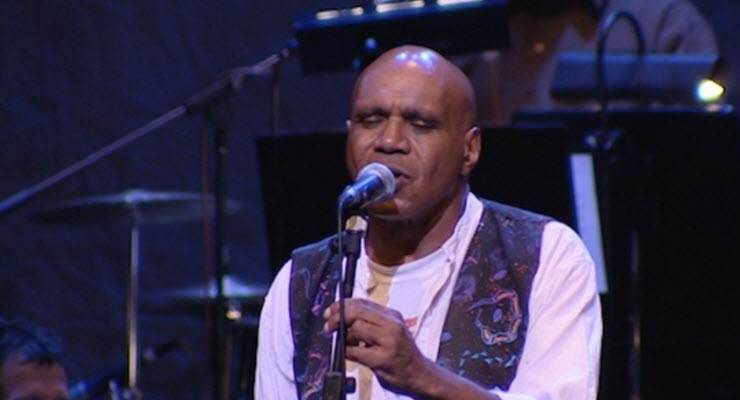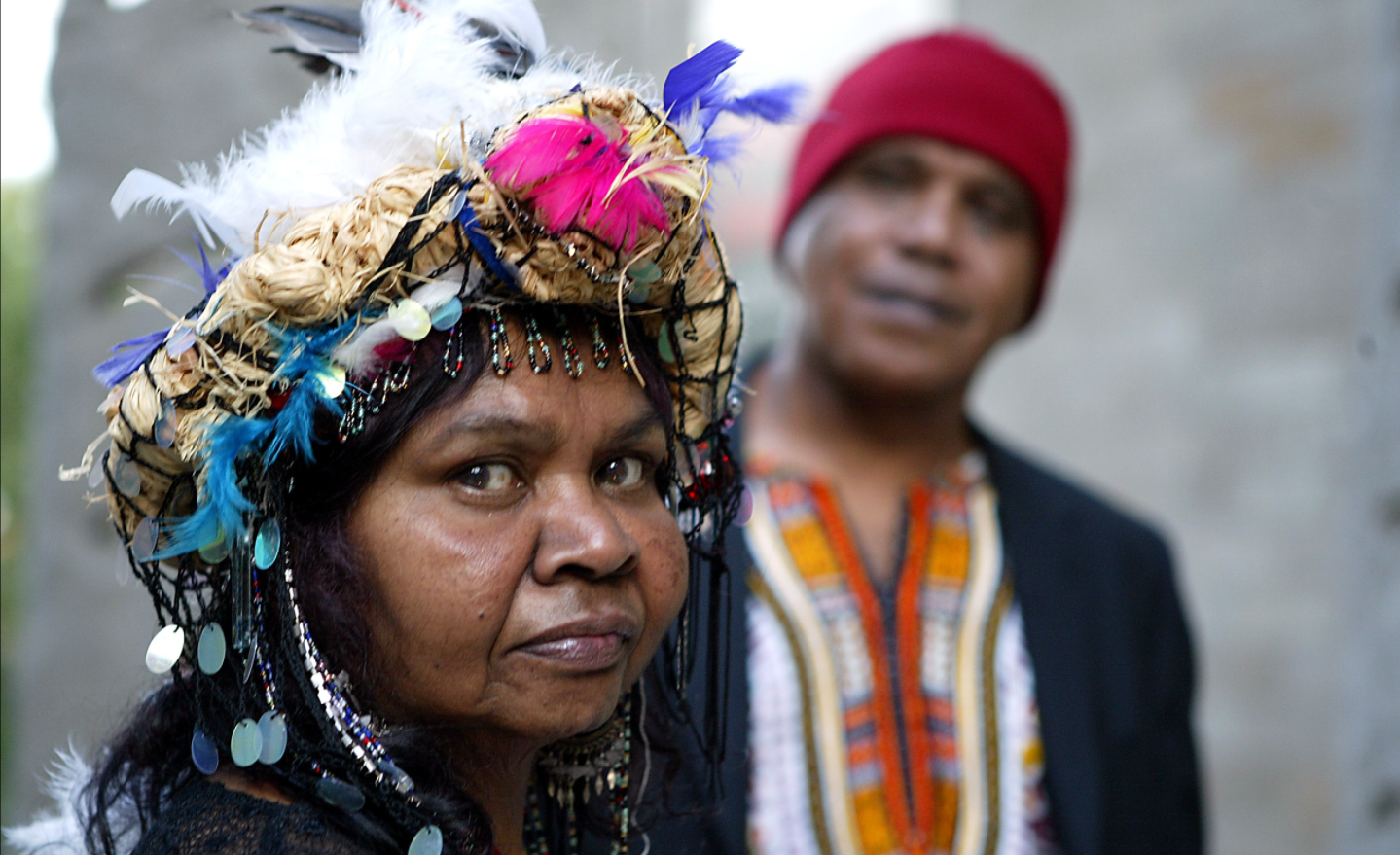
Indigenous readers are warned that this article features the name and image of deceased persons.
Wash My Soul in the River’s Flow dubs itself “a love story in song”, which is accurate but maybe a little modest given the scale of what it reckons with.
It documents the rehearsals and opening night of 2004’s Kura Tungar — Songs from the River, a live collaboration between First Nations singer-songwriters Archie Roach and Ruby Hunter (to whom the film is dedicated), backed with Paul Grabowsky and the Australian Art Orchestra. The songs are autobiographical, going back through birth, childhood, the theft of Roach and Hunter from their families — and of course what this represents to several generations of Indigenous families — their struggles before they met, and the partnership that flourished after.
Winding through it all is the Murray River, which meets the sea in the lands of Hunter’s Ngarrindjeri people.
The role of song in many First Nations cultures — as a way of understanding the land one inhabits, of embedding and then passing on crucial knowledge — is well documented. The songs in Kura Tungar, while drawing on the aesthetics of jazz, country and folk, still lean heavily on this tradition. Kicking off proceedings with the exultant “Into My Bloodstream”, Roach describes a drought of inspiration being broken by a trip to the Murray: “The river gave me this song.”
Director Philippa Bateman emphasises this relationship between land and song by interspersing the performance with long dreamy sequences in the Murray and the Coorong. The scale shifts from sprawling expanses to close details; we see the orange embers of dawn breaking through saturnine clouds over the vast ocean, we fly over great stretches of river, white with reflected clouds, forked and thin as lightning, and then we are at the roots of leafless trees, pure black against the pink-blue dusk and erupting from mirror-like water that stretches flat to the horizon. There are no people, no sign of them, and the rhythm, the sense of time and scale, shifts accordingly.
Ruby Hunter and Archie Roach’s storytelling meets in perfect sympathy with the orchestra’s woozy, brass-led ornamentation, the music actively mimicking the flow of a river — swelling and retreating, gentle in one spot and rollicking in another. The effect can also be disquieting. Take the hauntingly jaunty ragtime of “Daisy Chains, String Games and Knuckle Bones”, in which Hunter recounts the games she would play with her siblings “before they took us from our Coorong home”. There’s an exultant and triumphant version of Roach’s immortal “Took the Children Away” — he explains this version lifts him above the events he describes.
Then there is the breathtaking “Nopun Kurongk”, a stately, generous tale of homecoming:
Don’t say goodbye, my child
And always look behind you
To that beautiful wild
And all the things that remind you
Of being free
Tying all this together is the story of Roach and Hunter. “Archie is my silent hero. And I’m his rowdy troublemaker,” Hunter says at one point, her words giving off a comet’s tail of throaty laughter.
Hunter is a marvel — a deft, graceful writer and an incredible singer. She has an exquisite depth and clarity in those undulating bass notes, which is particularly evident live. Emanating from her inquisitive, intelligent, mischievous eyes, she fills every room she’s in, even when silently swaying as Roach sings. After “Down City Streets”, her song about homelessness and related struggles, Hunter says it’s lucky she didn’t cry, and Roach says that her performance did bring tears to his eyes. “Well, that’s good,” she replies with a smile. “Probably because you’re so beautiful,” he says half to her and half to the camera, and he’s being playful, but it’s not a joke.

“Old So and So” tells the story of their meeting. Back in the ’80s, at a crossroads in every sense, Roach tossed a coin as to whether to return to Melbourne or head to Adelaide. The coin delivered him to Adelaide, and to Ruby. “Few people can have gained so much from one toss of a coin,” Archie Roach says in his memoir Tell Me Why, going on to recount how Hunter nurtured him and introduced him to a connectedness — to culture, to country — he’d never known. They eventually embarked on a partnership in music and in life.
The first line of dialogue we hear is Roach asking: “Have you ever seen something so exquisite and beautiful that … you feel like you don’t even deserve it, to stand in someone’s light? That’s how I feel around Ruby sometimes.” After all their years together, Hunter still puts Roach in a state of quiet awe.
There are big ideas in Wash My Soul: song as a navigation tool for both landscapes and history, history as personal and national trauma, and the way they all bleed into one another. The songs that make up Kura Tungar (and later, the album Ruby) are singular and beautiful achievements, unlike anything in Australia popular music. But what really sticks with you, as the tagline suggests, is the love, and what it made possible.








A heartfelt musician and an ambassador for his people. I saw Uncle Archie a couple of times, most notably at Womad in 2003, with a group of fellas with whom I worked. Magical occasion. He will be sorely missed.
Thank you for this article, and the link to Wash my Soul in the River’s Flow. He was such a beautiful, gentle man. His music could serve as a fitting accompaniment to our deliberations about The Voice – the gift we are being offered.
I hope this country can listen to his voice and not to those of the few who seek to ruin this opportunity .